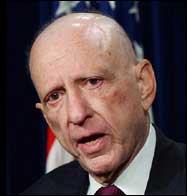A glimmer of hope for edtech funding


Under the Senate bill, the U.S. Department of Education (ED) would receive $55.8 billion in 2007--$1.5 billion more than the $54.3 billion requested by Bush, but still nearly $2 billion short of what schools received in 2006. As work on the 2007 appropriations bills begins on Capitol Hill, advocates of educational technology say the Senate's proposal is proof that lawmakers don't necessarily share the administration's desire to cut domestic spending. Given that it's an election year, and politicians on both sides of the political aisle will be looking to curry favor with their constituents, the odds that lawmakers will preserve the Enhancing Education Through Technology (EETT) block-grant program and other technology-related spending measures are improving.
The Senate proposal doesn't give line items for funding, but edtech advocates are hopeful that at least some of the targeted edtech funding would be restored.
"At this stage of the budgeting process, this increase is an extremely important step in restoring federal support for technology in education, as it provides increased funding flexibility for Congress to address critical priorities in the global competitiveness agenda and in support of schools' efforts to meet the rigorous requirements of No Child Left Behind," said Don Knezek, chief executive officer for the International Society for Technology in Education (ISTE).
Specter sounded angry about the president's budget in remarks for his proposal.
"We have done more than cut out the fat, we have done more than cut through the muscle, we have done more than cut through the bone; we have cut into the marrow," said Specter in support of the Senate bill.
The House won't begin budget deliberations until next week.